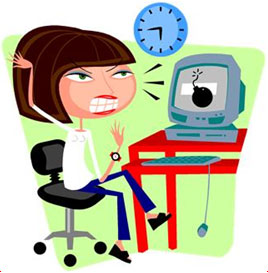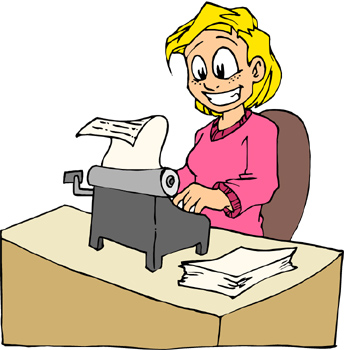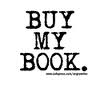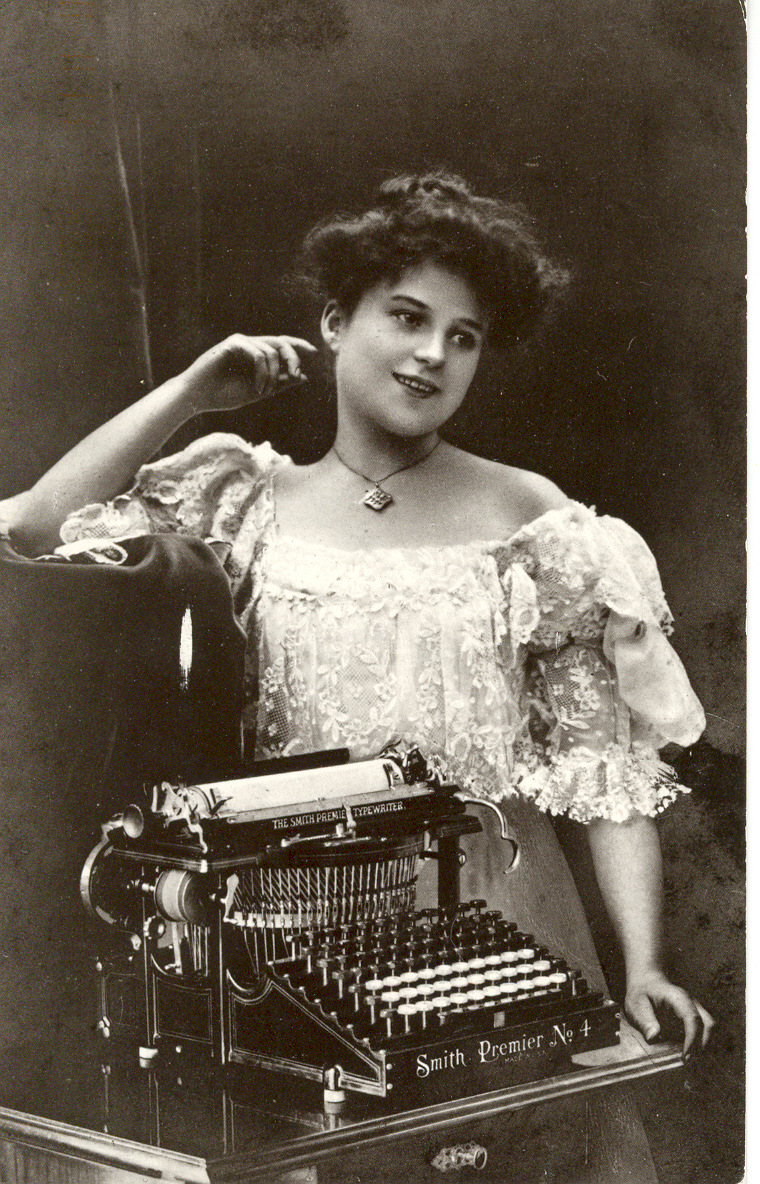
If you ask me, you’re better off keeping it there, writes Julia Stephenson.
We recently came to the end of National Novel Writing Month. This event started in 1999 and has since grown into a worldwide movement. Wannabe writers were encouraged to write a 50,000-word novel by midnight, December 30. The website explains: 'They start the month as auto mechanics and English teachers. They walk away novelists.'
I hate to rain on this parade, but the last thing the world needs is more novelists.
To encourage useful people like mechanics and teachers to down tools and waste time trying to write a novel is daft (to say nothing of the sacrifice of trees — think of the orang-utans)
The planet is weighed down with the weight of unread books and the frustration of impoverished authors. Many people think that publishing their book is a dream come true when in truth it's the start of many problems.
 I've published three books so I know what I'm talking about. I wrote my first novel - Pandora's Diamond, a racy roman a clef - when I was 25. It was doubly thrilling for me as I'd never held down a proper job. I'd worked as a chalet girl, been a cleaner and a switchboard operator for my father (he sacked me after a week as I kept cutting people off). The book sold 30,000 copies which isn't bad and I was given a small advance to write a second, Chalet Tiara, based on my experiences of working as a chalet girl and being sued for food poisoning in Crans Montana. I was pinging off the walls with joy.
I've published three books so I know what I'm talking about. I wrote my first novel - Pandora's Diamond, a racy roman a clef - when I was 25. It was doubly thrilling for me as I'd never held down a proper job. I'd worked as a chalet girl, been a cleaner and a switchboard operator for my father (he sacked me after a week as I kept cutting people off). The book sold 30,000 copies which isn't bad and I was given a small advance to write a second, Chalet Tiara, based on my experiences of working as a chalet girl and being sued for food poisoning in Crans Montana. I was pinging off the walls with joy.
Having never enjoyed any notable success before, it came as a horrible shock when some friends became rabidly jealous. It's commonly believed that true friends stick with you when you're down, but real friends are the ones who celebrate with you when your dreams come true. One close friend who had claimed to be writing her own tome for years and disappearing into the London Library for months at a time began to make spiteful comments out of the blue. "Of course many of our friends say that you only got a publishing deal because of your family contacts," she spat out during a coffee one day, referring to my fourth cousin twice removed who is a big cheese in the meat trade.
People say very odd things to authors. Mention you're an author at a party and people will simper, "Should I have heard of you?" and "Would I have read of any of your books?" Whatever you reply ignominy threatens as they quite clearly haven't a clue who you are. I usually reply, "Oh I shouldn't think so", and shuffle off. Authors often have to deal with bores inflicting them with very dreary life stories and anecdotes which they wrap up with, "Don't you dare put that in one of your books!" The people with the most sparkling stories never say that. Given these pitfalls it's astonishing that the world is still heaving with frustrated authors who would do anything to get into print. Thank heavens for the self-publishing industry which gives them a finished product and a sense of achievement. They have a tangible result and something to offer family and friends. The trouble is, writing a book (even for a mainstream publisher) is no guarantee of being stocked in a book shop.
 Thousands of books are published every week and miserably bookshops don't have room to stock more than a fraction of them. Authors must now be self-propelling PR gurus stripping off naked in magazines (like historian Amanda Foreman) to flog their wares. I had my own nude moment in Tatler. The mag body-painted me wearing a butcher's apron and brandishing a meat cleaver and a book. Some of my relatives have never forgiven me.
Thousands of books are published every week and miserably bookshops don't have room to stock more than a fraction of them. Authors must now be self-propelling PR gurus stripping off naked in magazines (like historian Amanda Foreman) to flog their wares. I had my own nude moment in Tatler. The mag body-painted me wearing a butcher's apron and brandishing a meat cleaver and a book. Some of my relatives have never forgiven me.
Much worse than stripping off is trying to sell one's book to indifferent booksellers. I once braved the revered John Sandos bookshop round the corner from my flat, copy of Pandora's Diamond clutched in sweaty hand and hoping they might be interested in a local author. A snooty assistant looked down his aquiline nose and sniffed: "Ay don't think it's for us, thank you." You'd think Amazon would be a wonderful tool for the modest-selling novelist. How marvellous to know that one's oeuvre is rarely out of stock and available at the click of a mouse. However books are so discounted (Chalet Tiara, is currently retailing at £0.01) the struggling authoress is unlikely to make a bean.
My third novel was taken up by a tiny publishing house that don't pay advances and one year later I've received the princely sum of £700. Amazon now has a scary scheme called the Amazon Vine Programme. If you are happy to review books on the site they will send you scores. What's not to like? Well, my latest book was put on the programme and the biliousness of these largely anonymous reviewers takes your breath away. To my shame, I got very indignant and under an assumed name answered some of them back. I got carried away, even reviewing my own books under a number of aliases. As I am not technologically competent, a review of Pandora's Diamond on the American Amazon site has one glowing review, from um, Julia Stephenson (I couldn't work out how to change my name, and once you post you can alter the review but not remove the name).
I wasn't going to come clean about this but I feel it's time to confess. I prefer to out myself rather than wait for someone else to spot some of the, ahem, similarities in some of my more enthusiastic reviews. Writing reviews under different aliases is challenging. In order to post one in a new name you must have bought a book, which means registering with different credit cards, passwords and usernames. My favourite alias is Bob Gold from Blackpool. I envisage him as a louche ex-nightclub entrepreneur who may have had something to do with Radio Caroline. He responds to bad reviews from shouty ladies ("I've never read a book that made me so angry!") with a benign but irritating, "Cheer up, luv". Bob is great.
 Many reviewers on Amazon Vine are permanently livid. It's enough to make you start looking under your car. What motivates these people? One reviewer, who uses the alias Lady Cat and is photographed in her profile with 15 felines, posted 25 abusive reviews about my most recent book. Luckily Bob Gold saw her off with a pithy "Leave off, luv".
Many reviewers on Amazon Vine are permanently livid. It's enough to make you start looking under your car. What motivates these people? One reviewer, who uses the alias Lady Cat and is photographed in her profile with 15 felines, posted 25 abusive reviews about my most recent book. Luckily Bob Gold saw her off with a pithy "Leave off, luv".
Few authors are spared the misery of anonymous reviews. With sympathy and some schadenfreude, I noted the spat between award-winning novelist Polly Samson (aka Mrs David Gilmour, the Pink Floyd guitarist) and an Amazon Vine reviewer who posted a jealous critique of her new book. Most entertainingly a DJ Gilmour has waded onto the review page to stick up for Polly. Or could she be writing under his alias? I certainly post reviews of my book using my husband's Amazon account. Doesn't everyone?
You can usually spot self-reviewers as they are very gushy and often recommend their book "would make a great book for Christmas!!!" They use lots of exclamation marks and capital letters. Even when I'm reviewing one of my books I never say it would make a great present: it's just a dead giveaway.
Some of my best work has been the glowing critiques I have penned about that excellent book Letting Go of the Glitz — One Woman's Struggle to Live the Simple Life in Chelsea, which happens to be written by moi. Indeed, I've spent so much time writing my own reviews I could have written a new book by now.
My boyfriend, who is 100% Teflon-coated, berates me for getting so upset. It is ridiculous caring so much about the opinions of the random mad people who stalk the internet, he insists. As long as the people who know you support you, then that's the most important thing. But as I said, the people who know you often don't support you. Even my sister has maintained a mystifying radio silence about all my books — I doubt she has read any of them. I once gave a book to a friend who passed it to her father. He came up to me at a party and sneered, "You're no Jane Austen, are you?" When I complained to my friend she replied, "Well it's just your karma, move on." At times like this I wish I'd persevered at the family switchboard.
Given the frustration of being a novelist I would like to ban literary competitions such as National Novel Writing Month. It's unkind to encourage people to write when there are too many unwanted books in the world already. Novelists should be given a subsidy not to write any more, just so readers can catch up with the millions of perfectly good, unread books already out there. In the past farmers were given subsidies not to grow food, so to give novelists a subsidy not to write makes perfect sense.
How else will we ever diminish the world's towering book mountains?
